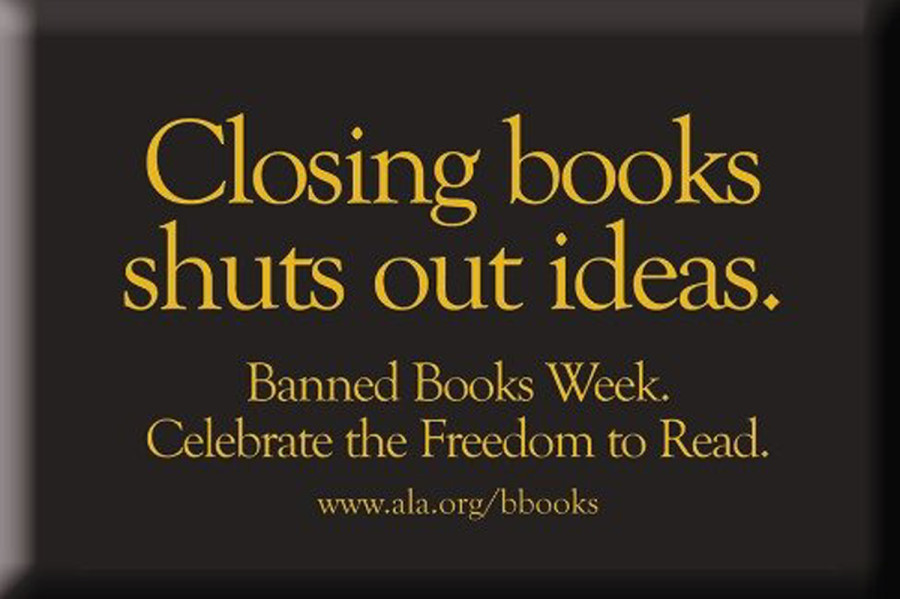At LHS Fahrenheit 451 is a common book students have to read in their English classes. The book seems incomprehensible: people burn books and are banned from reading them, from learning . Reading is essentially against the law. To those who live in today’s society, what happens in Fahrenheit 451 seems impossible and inconceivable.
Yet from Sept. 30 through Oct. 6 the American Library Association celebrates 30 years of liberating banned books, a dark part of the American culture quite like that in Fahrenheit 451, with Banned Books Week.
Back when crude language was looked down upon, race was an issue, and people didn’t believe in discussing sex or sexuality, books that delved into these issues were automatically shunned. These books were banned from library shelves, from school districts, and even from states.
It seems barbaric that the United States exhibited similar actions to the Nazis who also banned and burned books, yet some books are still banned in the US today. We are lucky enough to live in a state that gives its people the opportunity to read what they choose.
Even classic books that we now treasure and have all read were banned or challenged and seen to be inappropriate, some even to this day. Books from The Great Gatsby, The Catcher in the Rye, To Kill a Mockingbird, The Grapes of Wrath, to The Lord of the Flies, 1984, Brave New World, A Farewell to Arms, Native Son, and A Separate Peace.
These are books that are now common, books that LHS’ students have read. These are books that high schoolers read as requirements: yet, they were and still are banned from libraries, from schools, and from certains states. In some places these books still are banned.
Think about what would happen if people weren’t allowed to read these books. These books have not only shaped and influenced peoples lives but they have influenced modern literature and they broke barriers. The liberation of literature follows through on essential liberties provided by the Constitution; the freedom of speech and the freedom of press.
Even now books are still challenged and banned. In 2010 and 2011 The Hunger Games trilogy was a top challenged book. This national bestseller and blockbuster hit was challenged for being insensitive, anti-family, and violent. A successful teen novel The Perks of Being a Wallflower has appeared on the challenged list multiple times in just this decade. Even books of the Harry Potter series have been challenged within the last decade for having witchcraft.
We are even still prosecuting classic books such as The Adventures of Huckleberry Finn and To Kill a Mockingbird.
The ALA looks to bring back and keep literary freedom of speech and press and thus they have enacted Banned Book Week.
ALA gives a summarization of Banned Books Week on their website, http://www.ala.org.
They say,“Banned Books Week is an annual event celebrating the freedom to read…it highlights the value of free and open access to information…By focusing on efforts across the country to remove or restrict access to books, Banned Books Week draws national attention to the harms of censorship.”
LHS is active in celebrating and bringing awareness to Banned Books Week. The LHS library displays a few of the top banned books.
Librarian Jamison Hedin says, “ I think [Banned Books Week] is important because books are still being banned…books that we have here like Looking for Alaska and The Absolutely True Diary of a Part-Time Indian have been banned in the US as recently as last year and I think it’s important students know their freedom to read what they want could still be in jeopardy.”
People nowadays often take the ability to read for granted. Remember that reading is a privilege. The information and knowledge that we can receive isn’t biased or controlled by a central unit. In another age or place we wouldn’t be able to read, everything would be banned and burned.


